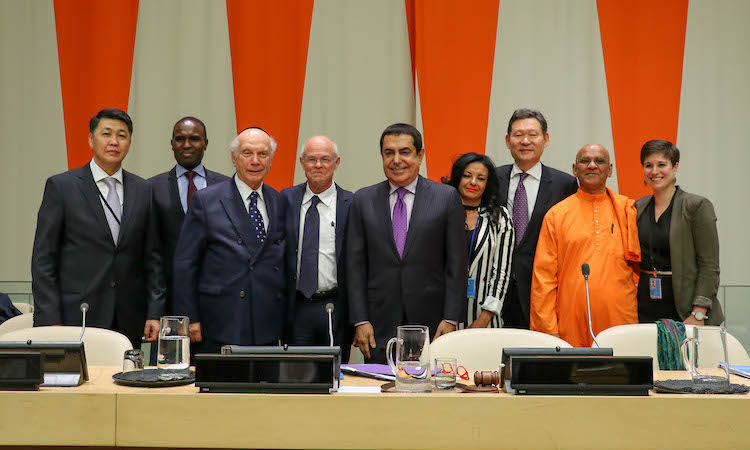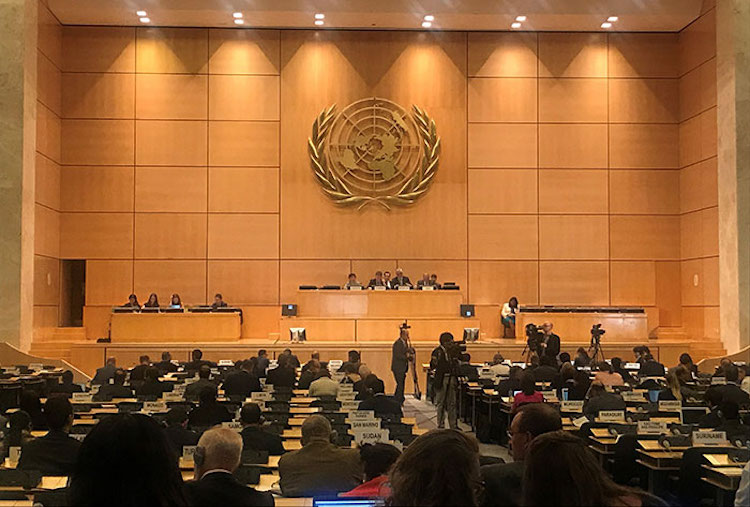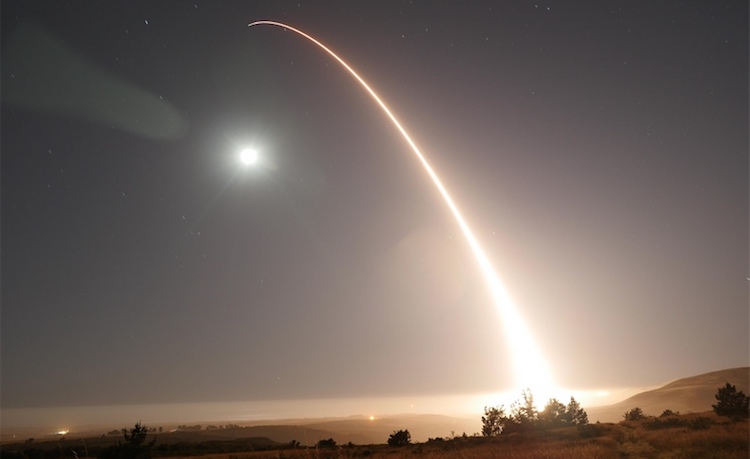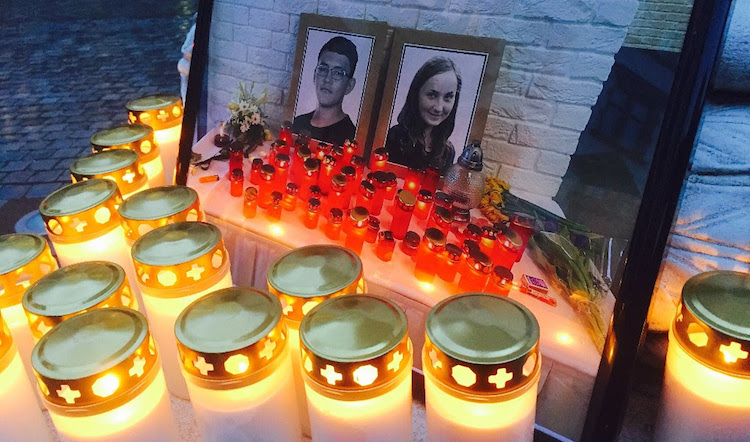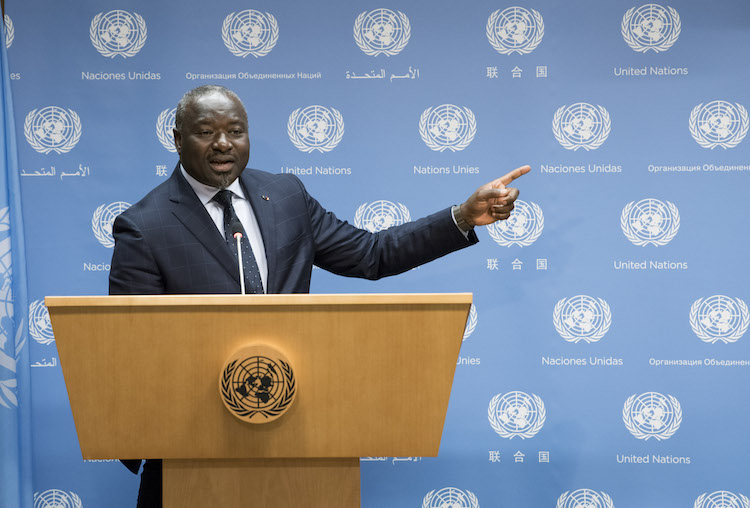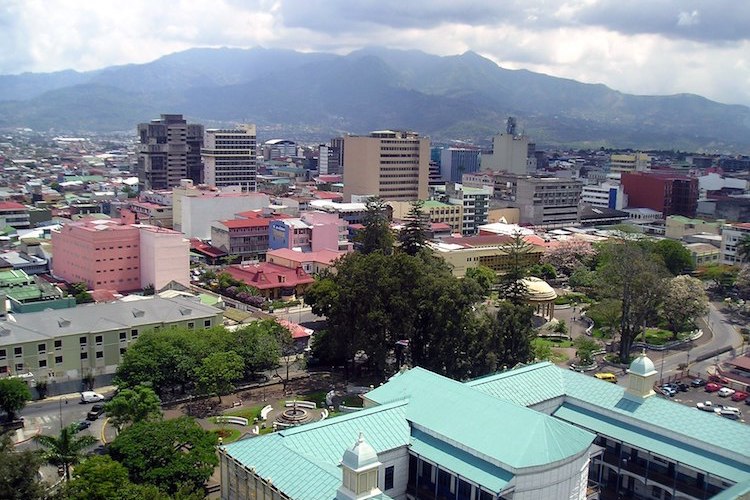By J Nastranis NEW YORK (IDN) – Experts have deplored President Donald Trump’s decision to withdraw the U.S. from the Iran Nuclear Deal. The Nuclear Age Peace Foundation (NAPF) called it “a dangerous move” that “will have major international consequences”. Daryl G. Kimball, executive director of the independent Arms Control Association said the decision was […]
Iran Nuclear Deal Withdrawal ‘Misguided’, ‘Serious Mistake’
By Barack Obama The following is the text of former President Barack Obama’s remarks on his successor Donald Trump’s decision on May 8, 2018 to withdraw the U.S. from the Iran nuclear deal. The original appeared on Obama’s Facebook https://www.facebook.com/barackobama/posts/10155854913976749 – The Editor WASHINGTON, D.C. (IDN-INPS) – There are few issues more important to the […]
Kazakhstan Sets the Ball Rolling for the Landmark Interfaith Congress in Astana
By J Nastranis UNITED NATIONS (IDN) – “The holy scriptures of the Koran, Bible, Torah, the Bhagwad Geeta or the Lotus Sutra” underline “the vital importance to unite the efforts of political and religious leaders for the cause of security and stability across our planet,” said Kazakhstan’s Vice-Minister for Religious Affairs and Civil Society, Berik […]
Faith Communities Urge Geneva Conference to Pave the Path to a Nuclear-Weapons-Free World
By Jamshed Baruah GENEVA (IDN) – Diverse faith-based organizations and individuals are appealing to States gathered at the UN in Geneva to spare the world a nuclear catastrophe and foster sustainable development for the good of humanity affirming moral and ethical imperatives. Twenty groups and individuals from different faiths, including Christian, Quaker, Muslim and Hindu […]
US Launches Minuteman III Missile Test in Cloud of Secrecy
NEW YORK (IDN) – With little prior notice from military officials, the U.S. launched a Minuteman III Ballistic Missile on April 25 morning at approximately 5:26 a.m. from Vandenberg Air Force Base. Civilians and residents living near the base, who regularly receive ample notice of missile tests, were left in the dark this time as […]
State of Emergency for Press Freedom in Europe
By ECPMF BERLIN (IDN) – The European Centre for Press and Media Freedom (ECPMF) in Leipzig, Germany, is warning against the dismantlement of freedom rights and the increasing threat against journalists in the EU. “Demagogues and autocrats are fighting the free press because they cannot stand democratic control. Under a corrupt administration the work of an […]
‘Fire and Fury’ in Danger of Becoming Trump’s ‘Mantra’
Viewpoint by Jonathan Power* LUND, Sweden (IDN-INPS) – A speech of General George Patton, a famous World War 2 warrior, has an uncanny resemblance to the philosophy of Donald Trump. “All real Americans love the sting and clash of battle. Americans love a winner and will not tolerate a loser – Americans despise cowards. Americans […]
UN and CTBTO Hail End to Nuclear Testing by North Korea, Denuclearization Remains a Mirage
By Ramesh Jaura BERLIN | VIENNA (IDN) – UN Secretary-General António Guterres and Comprehensive Nuclear-Test-Ban Treaty Organization (CTBTO) Executive Secretary Lassina Zerbo have welcomed the announcement by the Democratic People’s Republic of Korea (DPRK) to halt its nuclear testing programme and to dismantle the test site. The announcement came six days ahead of the DPRK […]
Strong Plea for Early Entry into Force of Nuclear Ban Treaty
By Jamshed Baruah GENEVA (IDN) – On the eve of a crucial international conference, an eminent Buddhist organization advocating a nuclear-weapon-free world has called for the signing, ratification and early entry into force of the Treaty on the Prohibition of Nuclear Weapons (TPNW) adopted by 122 UN member states as a sign of their resolve […]
Costa Rica Advised To Make Growth More Inclusive
By Robert Johnson PARIS (IDN) – Costa Rica, renowned for its ecological footprint, forest protection and abundant biodiversity, has made impressive economic and social progress in recent years, with robust economic growth facilitating near-universal access to education, health care and pensions. But the Central American country is faced with a fundamental challenge: its fiscal imbalance, […]



